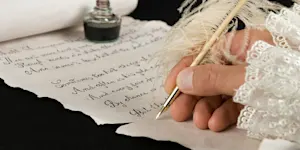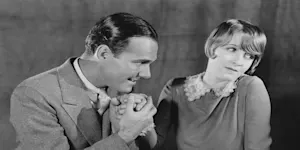What Makes This Word Tick
"Phlegm" might make you think of coughing and sneezing, but there's a bit more to this curious word. It refers not only to that infamous, thick mucus but also has a historical underpinning related to one of the four bodily humors from ancient medicine. Don't worry; discussing it here won't require you to reach for a tissue.
If Phlegm Were a Person…
Imagine Phlegm as that quiet, steadfast type who's not easily rattled. They're the friend who remains calm in a crisis, taking everything with a grain of salt—somewhat relaxed and rarely emotional, just as the humor theory suggests. You'd probably invite them to a meditation retreat!
How This Word Has Changed Over Time
Back in the days of Hippocrates, phlegm was one of four humors believed to dictate temperament and health. Fast-forward to today, and it's largely tied to the stuffy-nosed reality of cold season. Its journey from humoral balance to a more mundane substance reflects medicine's evolution from mystical to modern.
Old Sayings and Proverbs That Use Phlegm
While "phlegm" might not crop up in many classic proverbs, its root idea of steadiness certainly does. Think of the phrase, "Keep calm and carry on." The spirit of maintaining composure through thick or thin has a bit of phlegm's legacy in it.
Surprising Facts About Phlegm
Phlegm has a celebrity cousin: it's similar to mucus but is specific to the respiratory system. It acts as a shield, trapping dirt and germs. In ancient Greece, being "phlegmatic" meant you were cool and collected—qualities we still admire today, even if we rarely associate them with bodily fluids.
Out and About With This Word
You might find "phlegm" sneaking its way into medical dramas or health documentaries, often as a sign of something not quite right. It's not the belle of the ball but vital for the gritty reality of being human.
Pop Culture Moments Where Phlegm Was Used
While phlegm might not light up the big screen, its spirit lives on in laid-back characters or the steady hand in a chaotic scene. Imagine a phlegmatic detective in a cozy mystery, calmly sorting through clues while sipping tea.
The Word in Literature
Literary uses of phlegm are often metaphorical, highlighting a character's unflappable nature. You might find it nestled in historical fiction as an allusion to humoral theory or providing comic relief when things get too stuffy.
Moments in History with Phlegm
The theory of humors was alive and well during the Renaissance, making phlegm part of everyday discussions on health. Think of scholars pondering the balance of humors—perhaps sipping their morning coffee with a philosophical shrug.
This Word Around the World
In different languages, phlegm often translates directly but carries cultural contexts from traditional medicine to modern health. The Spanish "flema," for instance, has retained some of that cool composure flavor from the humor days.
Where Does It Come From?
"Phlegm" flows to us from Greek roots through Latin, originally denoting "inflammation" before cozying up in the mucus category. It has spent time in medical texts, shaping its slightly serious, assured aura.
How People Misuse This Word
Some people mistakenly use "phlegm" to refer to any mucus-like substance, but it's specific to the respiratory tract. It’s a finer point that might fly under the radar during casual conversation.
Words It’s Often Confused With
Mucus: While closely related, mucus is a broader term for the slippery secretion found in various parts of the body.
Flem: A common misspelling, often popping up in digital conversations with spellcheck oversight.
Sputum: A medical term that often gets lumped with phlegm but specifically refers to what's coughed up, including foreign matter.
Additional Synonyms and Antonyms
Synonyms for "phlegm" in a metaphorical sense might include "composure" or "equanimity." As for contrasts, think of words related to excitement or emotional display, like "agitation" or "passion."
Want to Try It Out in a Sentence?
"Despite the chaos that erupted around him, John maintained the phlegm of an experienced sailor, unruffled, as he anchored the ship to safety."
















